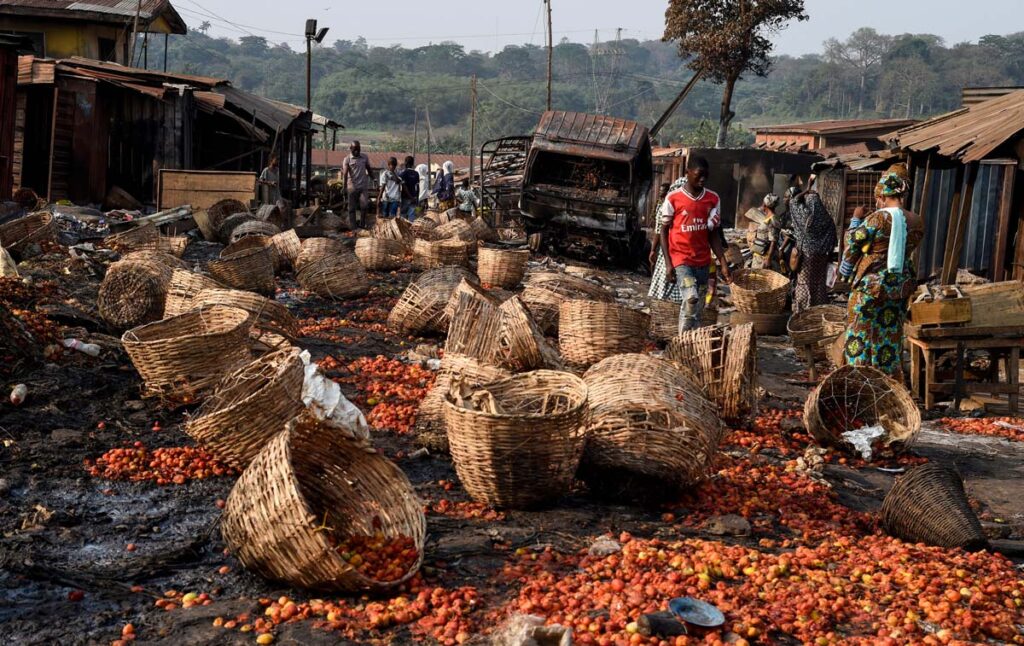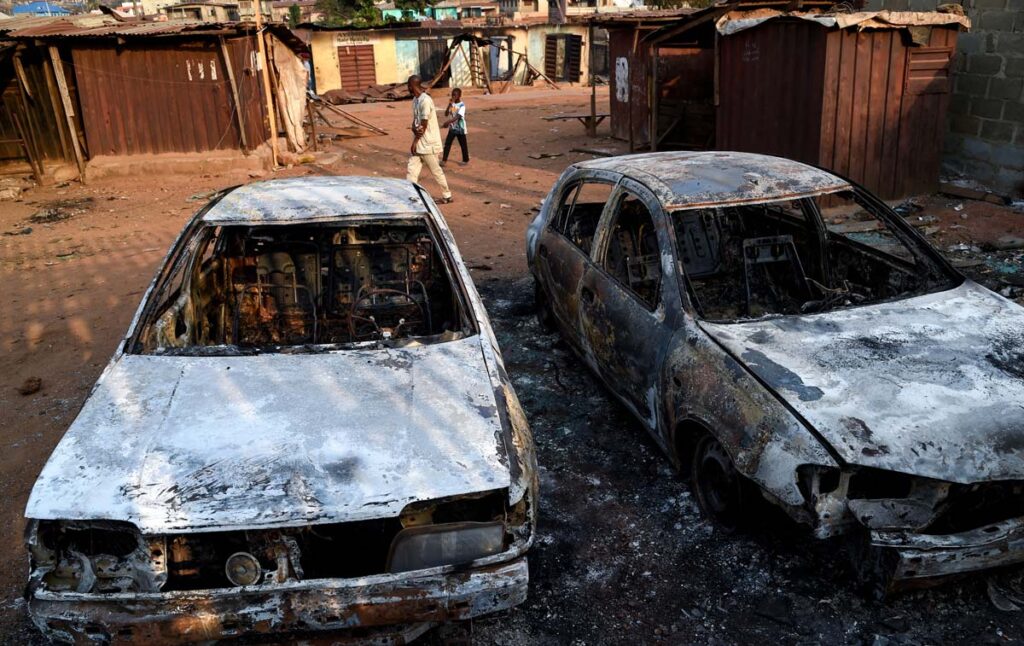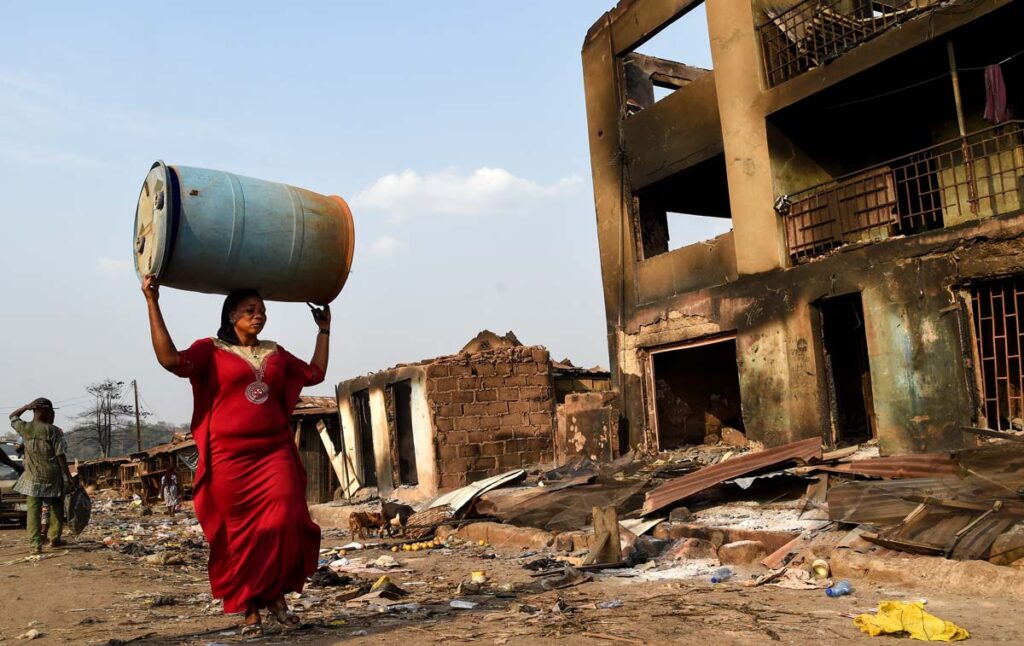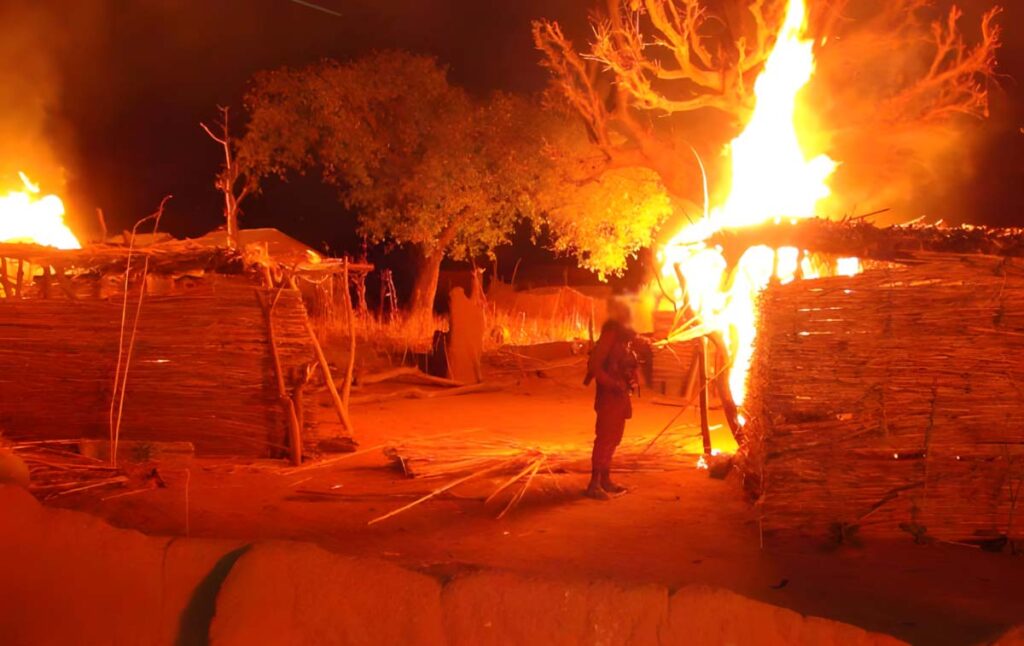Nigeria’s farmer-herder conflict has raged for more than two decades, claiming nearly 20,000 lives and displacing countless communities. The conflict is one of the country’s gravest challenges in recent years. At the heart of the conflict lie competing claims over land and water resources and issues related to obstruction of traditional migration routes, livestock theft, and crop damage.
In Nigeria, most of the herders in Africa’s most populous country are Muslim-Fulani, traditionally nomads in the northern region. Crop farmers are common in various Christian-dominated communities in the south. However, drought and desertification have dried up many natural water sources across Nigeria’s far-northern Sahelian belt, forcing large numbers of herders to migrate south in search of grassland and water for their herds, according to a 2017 report by the International Crisis Group.
Aside from drought, Boko Haram conflicts and banditry across different states in the northern part of Nigeria have also led many herders to migrate to the south, where scarcity of pastoral land has pitted them against farmers, irrespective of faith.

Farmers often accuse herders of allowing their cattle to destroy crops on their farmlands. Still, herders in turn have accused farmers of unlawfully killing and poisoning their livestock, a development that has snowballed over decades into an unending crisis with more than two million people displaced in various states across Nigeria, according to a new report by the research firm, SBM Intelligence, titled ‘A Threat to National Stability’.
Cultural and religious differences have created a climate of mistrust that has proven difficult to break. Beneath the surface of this complex conflict, however, also lie sinister forces that manifest as destructive conspiracy narratives, misinformation, and disinformation on social media. These forces are often political actors who spread false narratives, exaggerating incidents, and using inflammatory language to undermine efforts towards peaceful resolution. When disinformation is spread on social media around farmer-herder conflicts, it serves various purposes, including polarising communities to gain support and discrediting the government of the day. Also, many share misinformation to promote specific ethnic or regional interests.
British Broadcasting Corporation (BBC) research in 2018 found that fake news on social media was fuelling the farmer-herder crisis in Nigeria. “Fake pictures circulating on social media, which users are falsely claiming depict inter-communal violence, are inflaming already high tensions in Nigeria,” the research report said.
That same year, a doctored video of then-President Muhammadu Buhari justifying herder attacks on farmers was shared online, and while it was debunked as fake news, that was only after the video had been widely shared.

In December 2020, herders from the Igangan community in the Ibarapa area of Oyo State, south-west Nigeria, were displaced following the death of a large-scale farmer and politician, Fatai Aborede. At the time of his death, there had been a series of killings and kidnappings in the area, and it was a popular assumption that herders were responsible. Many newspapers reported that Aborede had been killed by Fulani herders while returning from his farm.
Following this development, several self-help militias visited the community in the Ibarapa area to evict the leaders of the Fulani ethnic group, an action that was condemned by both the state and federal governments.
In the midst of the crisis, Nigeria’s former Minister of Aviation, Femi Fani-Kayode, also uploaded to his X account the image of a man holding a burnt child, describing the picture as a casualty of the Igangan crisis. The picture had more than 3,000 impressions. However, a fact check on the post revealed that the image was not from Nigeria but of an incident in a crisis in southern Cameroon. More importantly, a police investigation into Aborede’s death several months later revealed that it had nothing to do with the conflict between farmers and herders, as claimed by a section of the media. Most importantly, the deceased’s father said his son’s death was a political assassination, disguised as a murder by herdsmen.
More recently, when the chief executive of the National Examination Council in Nigeria, Godswill Obioma, died in 2021, it was widely reported that Fulani herders assassinated him after returning from a trip to Abuja. Angered by the development, there was outrage on social media. The situation, however, left many confused when his son announced hours later that Obioma had died after a brief illness. Police also dismissed reports that unknown gunmen murdered Obioma as “totally false, untrue, and a pure element of fake news.”
In the most recent example, in March this year, a mob in the country’s southern Edo State killed 16 travellers, mostly Hausa hunters, over false accusations of kidnapping. The victims were travelling from Port Harcourt to Kano for the Eid al-Fitr holiday when they were stopped around midnight by members of the Edo State Security Corps and local vigilantes. Seeing the travellers’ locally made hunting guns, weapons commonly used in northern Nigeria, the group mistook the travellers for armed Fulani herders. The incident intensified concern over rising mob violence, misinformation, and the alleged erosion of law and order in Nigeria.

“The farmer-herder crisis in Nigeria is a longstanding issue that has been exacerbated by the spread of misinformation on social media. Manipulated videos and images can easily convince people of a false narrative. Also, individuals with ulterior motives exploit people’s trust in visual content to push their agendas, leading to violence and exacerbating the crisis,” Olusola Oludiran, a researcher and fact-checker with a Nigerian media think tank, International Press Centre, told Africa in Fact.
Oludiran emphasised the need for critical thinking and fact-checking to prevent the spread of misinformation and promote a more accurate understanding of the issue. “The fake news surrounding the farmer-herder crisis is massive. So, the media must be willing to provide context and insights that help to clarify the complexities of the crisis.”
With the National Orientation Agency (NOA), Nigerian authorities are partnering with think tanks like Tomruk iHub Multiverse, DAFUDA, the Centre for Democracy and Development, and the Centre for Journalism Innovation and Development to train over 1,000 journalists and social media influencers on how to fact-check viral online content. Similarly, NOA has continued nationwide sensitisation campaigns central to the nation’s well-being, unity, and development with the theme ‘Promoting Awareness, Ethical Values and National Development’.
To strengthen these, however, the government needs to develop and implement policies addressing the conflict’s root causes, such as land ownership and resource control. On the other hand, media practitioners must work together to promote fact-based reporting and a nuanced understanding of the conflict through adherence to ethical reporting standards.
Civil society organisations must also promote peacebuilding initiatives through dialogue sessions, workshops, and community events that strengthen understanding and tolerance. There’s a need to get things right and swiftly fact-check content, especially now that most social media platforms have been monetised. People share pictures and videos for clickbait, so whenever something goes viral, verification is important to ensure that already heightened tensions do not escalate into a cycle of violence.
By doing the above, the government and the media will play essential roles in mitigating farmer-herder conflict and promoting a more informed and peaceful society.

Adejumo Kabir
Adejumo Kabir Adeniyi is a senior researcher at Good Governance Africa-Nigeria. He is an expert with many years of experience in community development work and governance accountability sector. Before joining GGA, Adejumo worked at Premium Times and HumAngle Media, two of Nigeria’s biggest newspapers specialising on conflict and accountability reporting. His work has featured on esteemed local and international platforms, including Zammagazine, El Pais, IJNet, Premium Times, HumAngle Media and TheCable among others. He is a 2019 recipient of the Diamond Awards for Media Excellence, a 2020 recipient of the Thomson Foundation Young Journalist Award in the United Kingdom, and a 2021 recipient of NAREP Oil and Gas Fellowship.



